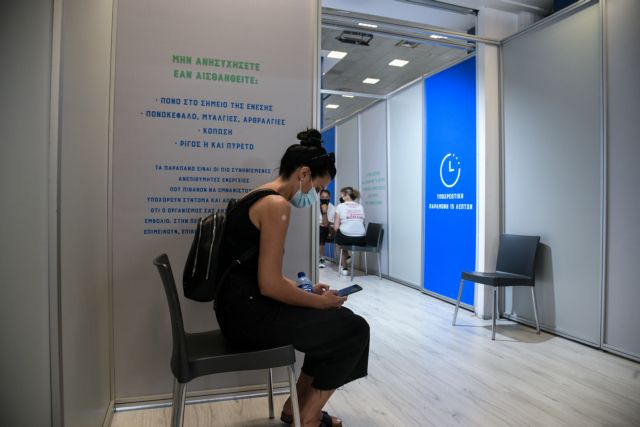Experts and the government are increasingly concerned about the spread of the “Delta” mutation of the coronavirus, with Crete in the spotlight.
Speaking on the show “MEGA Hour Society”, Nikos Tzanakis, professor of pulmonology, noted that although the island has several cases of the mutated strain, it remains in good epidemiological condition.
“We are a little perturbed by Rethymno, which has an epidemiological burden greater than we would like.”
According to the professor, the factors that lead to the spread of the pandemic, such as the low rate of vaccination in certain areas of the island, should be taken into account, however, there is hope that due to the extensive tracking the worst has been avoided.
“We have to look for them and make interventions. There is a possibility that it will be isolated (s.s. the ‘Delta’ strain) and that its establishment will be delayed as the prevailing strain.”
“Delta” very easily unlocks the immune system of children and young people
Apart from the prevalence of the “Delta” mutation, there is also concern about the number of cases that have been recorded in recent days nationwide.
“I am particularly concerned about the number of cases that were announced nationwide. We will look to next week to see if the growth pattern is consolidated. Then we have to worry.”
The fast-spreading Indian strain seems to show a preference for young people, up to 30 years old.
Most cases in Greece are young and have passed the disease lightly, however they are not a strong basis for drawing conclusions for the other age groups.
“We can not draw conclusions from the few incidents we have, as they are young. We need to see how this mutation works in people over the age of 50 who are having a hard time.”
“It’s a mutation that seems to unlock the immune systems of children and young people very easily. It is dangerous “, the professor notes, as children under 10 years old have also fallen ill, while the fact that the coronavirus can affect the health of young people in the long run is also important.
The landscape around the “Delta +” mutation is also murky, as it is still at an early stage, however, as the data show, vaccinated citizens are less at risk.
“We do not have any infected cases after vaccination at the moment. We are over 35% fully vaccinated, so it is an inhibitory factor that together with the weather creates conditions of slow transmissibility and dispersion.”
There is a lot of discussion about vaccinating children, but it is crucial to vaccinate primarily all adults.
“It would be good to vaccinate adults first and then children. The children will not become guinea pigs.”
Compulsory vaccination of priests
The initiatives of the church of Greece regarding the vaccination of citizens are also important, with Professor Tzanakis noting that the vaccination of all priests should become mandatory.
“I make a public appeal to the archbishop to impose compulsory vaccination for priests. They are transmitters if they get sick. They must be in the groups for compulsory vaccination,” the professor concluded, emphasizing that there is nothing to be afraid concerning the vaccine.



